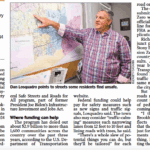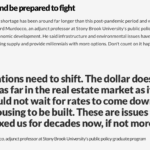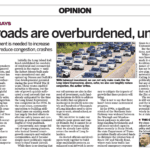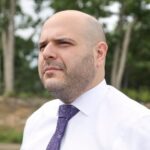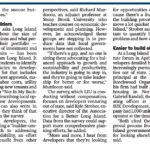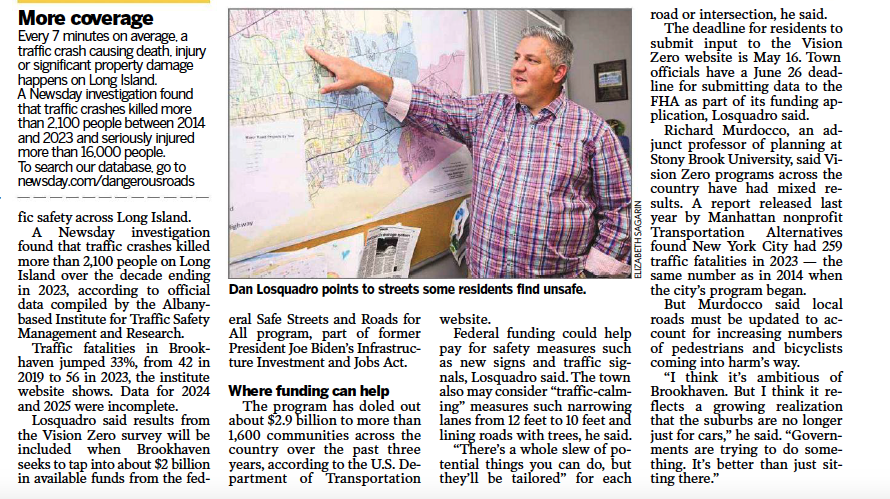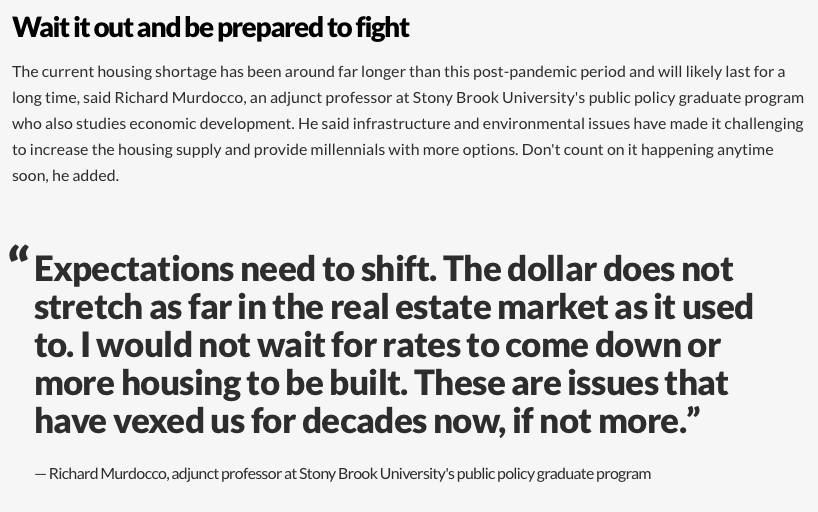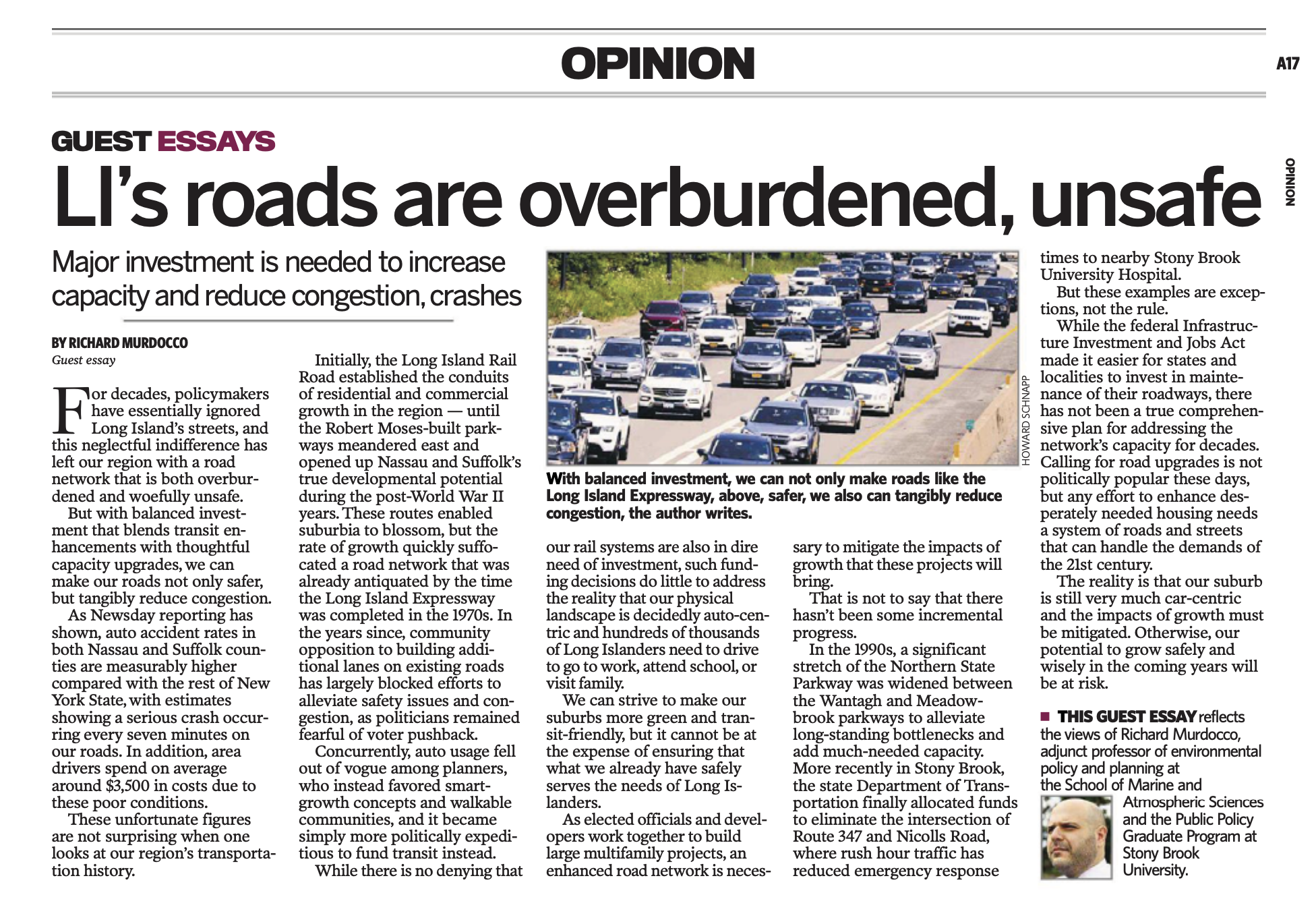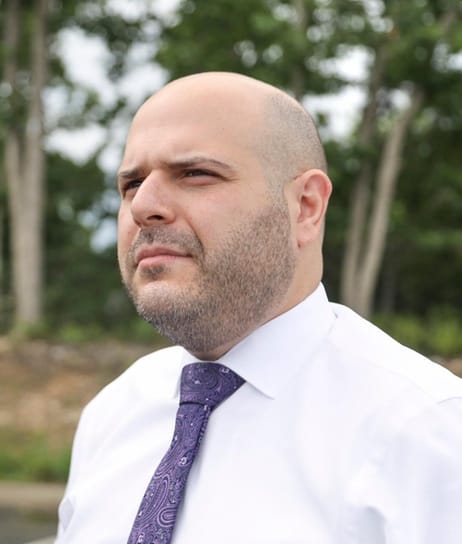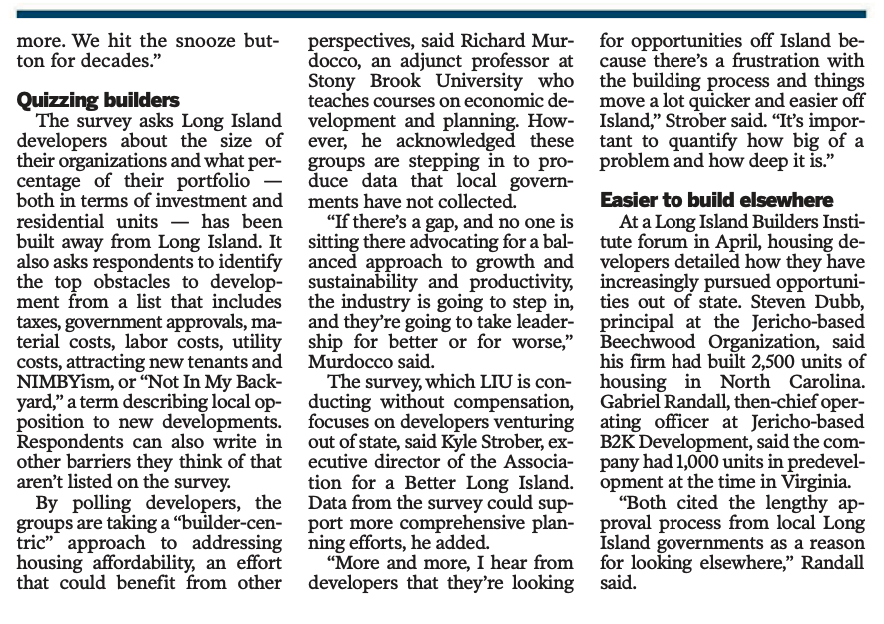The following are answers to The Foggiest Five, a set of questions asked to influential Long Islanders on the future of the region. This round features Neal Lewis, who is Executive Director of the Sustainability Institute at Molloy College. Neal’s answers reflect his experience helping to shape environmental policy. The views presented are the author’s alone, and do not represent those of The Foggiest Idea:
1. What is your favorite part of living on Long Island?
I’m a big Long Island booster. I like out beaches, our parks, our downtowns. I also really enjoy the many places that have partner dancing such as salsa, hustle, ballroom, etc.
2. What is our greatest regional challenge?
The “brain drain”.
3. What is an easy first step to solving this challenge?
Support smart growth development projects that are well designed and bring an appropriate scale of mixed use development into downtowns, etc.
4. What has been the biggest change that you’ve seen on Long Island during the course of your career?
Clearly Long Island is substantially more developed with malls and big box stores now.
5. What do you think Long Island will be like in 20 years?
I think development will go through a phase where the malls and big box stores are no longer in great demand and there is instead a shift towards designing communities with a sense of place, that are safer to walk around. I also think the goals of environmental protection and sustainable energy planning will be embraced by larger and larger members of the general public and these changes have the potential to remake Long Island into a more environmentally-friendly, healthier, and safer place to live work and raise families.
Neal is an environmental attorney, and the executive director of the Sustainability Institute at Molloy College which works to advance clean energy solutions to energy challenges such as global warming and air pollution. He is an outspoken advocate for wind, solar, geothermal, energy efficiency and smart growth. Neal is a member if the Nassau County Planning Commission and he recently finished serving on the LIPA board of Trustees for 4 years.
For about a year now, the Sustainability Institute has been leading a campaign to educate the public and government officials about the hazards associated with carbon monoxide. As part of this effort, Neal gave testimony before the Suffolk Legislature’s Health Committee and several Long Island towns. The Sustainability Institute recently launched a website: www.carbonmonoxidepolicy.org, and adopted 12-plan of recommendations for policies to reduce the risks of carbon monoxide exposure. A key component of the comprehensive plan is to seek requirements for carbon monoxide monitors in “all buildings” and that the CO detectors be the type that provide a “digital readout of low levels” of carbon monoxide that are below the level that triggers an alarm, but may nonetheless make people sick.


